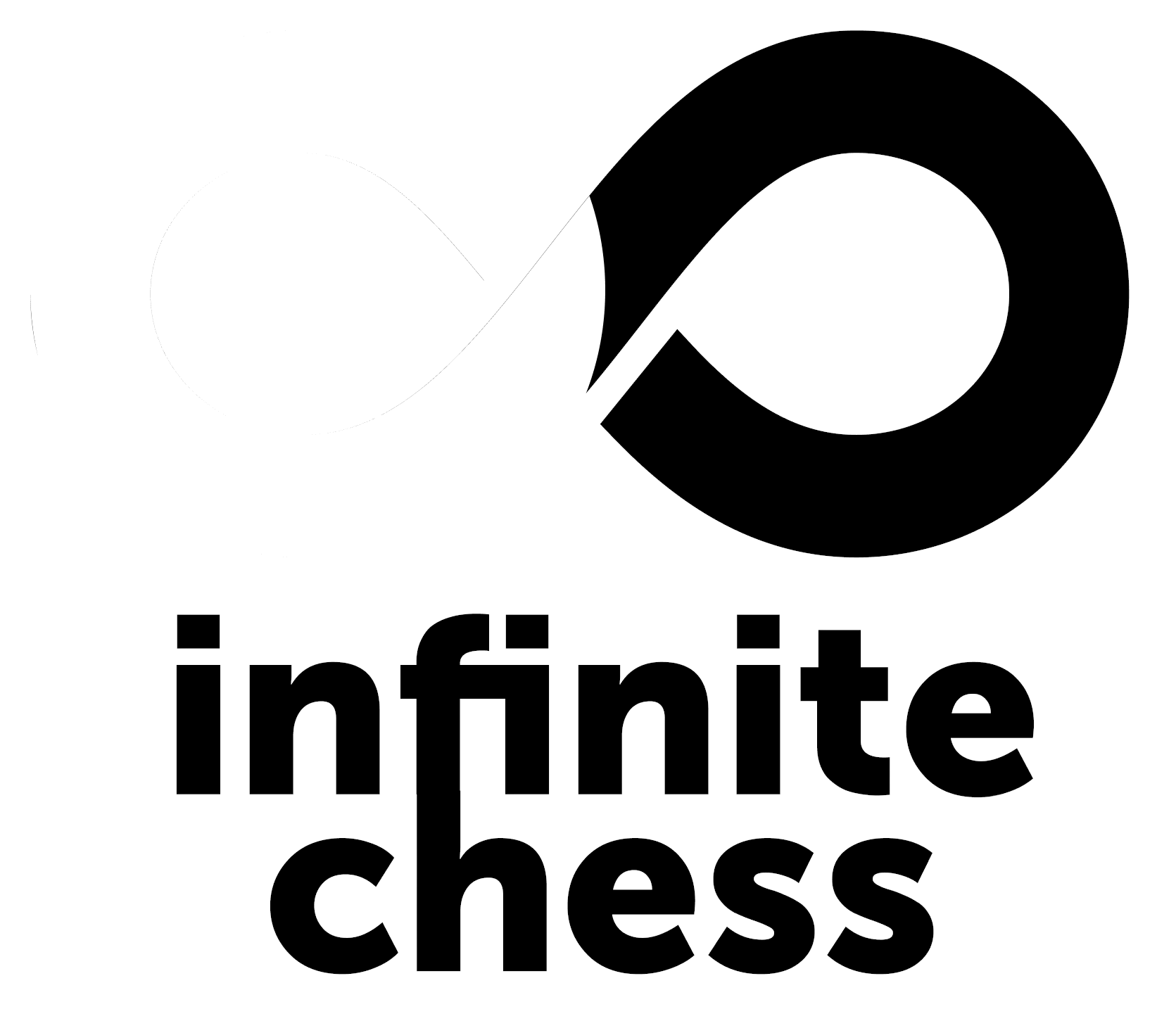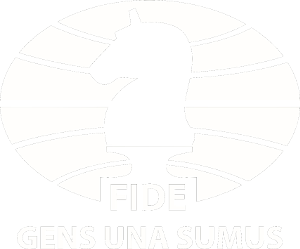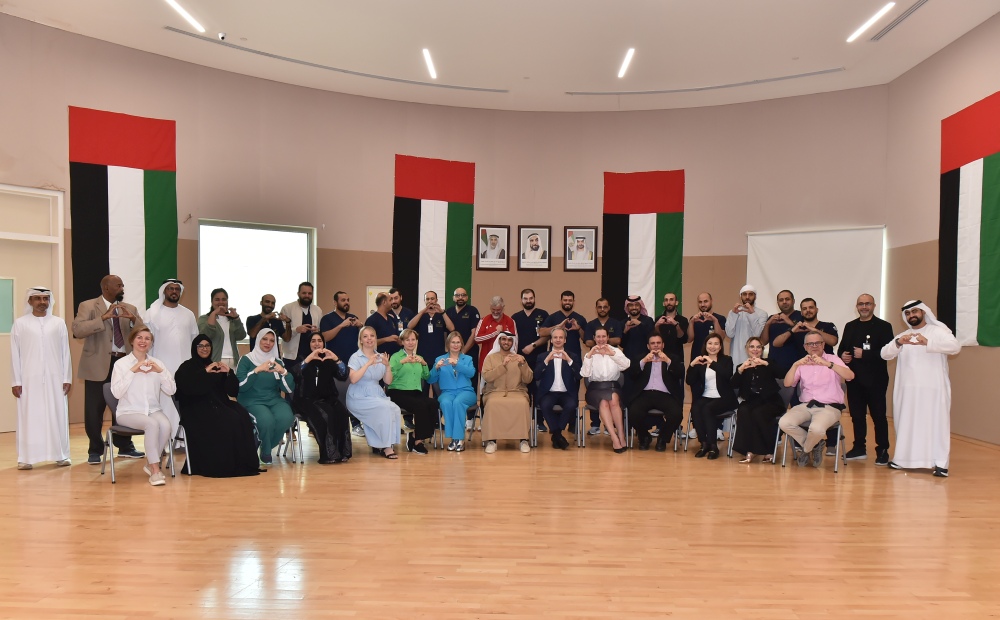
The International Chess Federation (FIDE), in collaboration with the Asian Chess Federation and the Zayed Higher Organization for People of Determination (ZHO), successfully concluded its educational visit to Abu Dhabi, marking a significant milestone in the global expansion of the FIDE Infinite Chess project. The initiative, designed to integrate chess into the learning environment of children with autism spectrum disorders, was held from February 2-6, 2025, with the support of the International Olympic Committee and FIDE Planning and Development Commission.
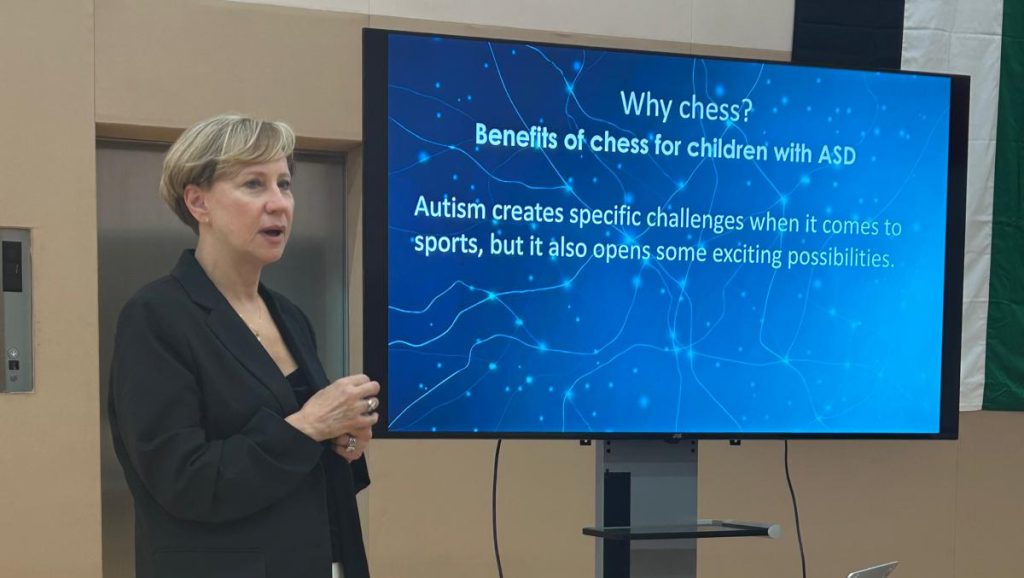
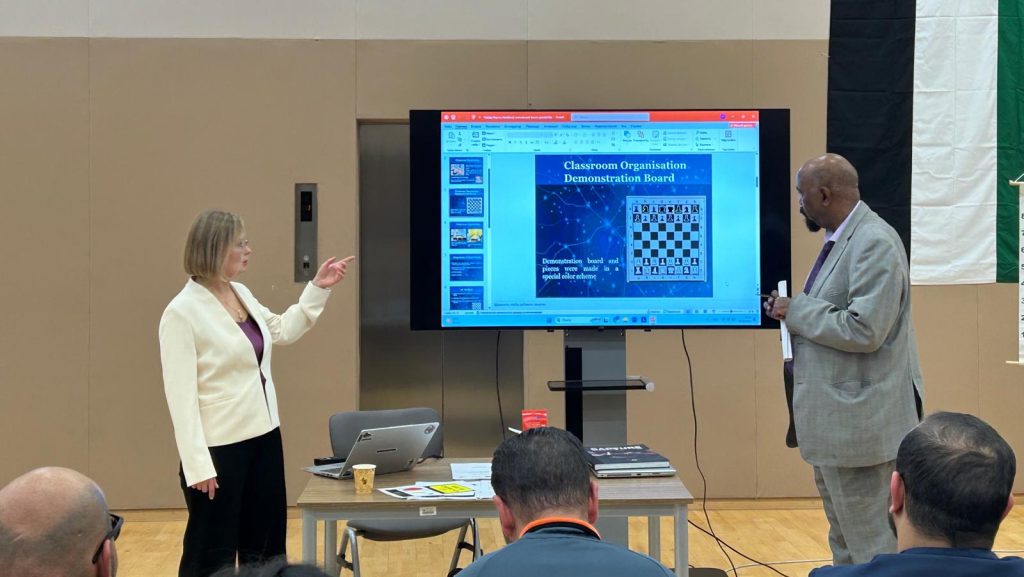
Educators and speakers included Ala Mishchanka, a special needs educational assistant and co-author of the project’s Handbook; Natalia Popova, WIM, FIDE Trainer, and leader of the two-year-long project teaching chess to children with autism spectrum, also a co-author of the project’s Handbook; Evguenia Charomova, National Chess Instructor, and Infinite Chess partner; Gulmira Dauletova, Executive Director of Kazakhstan Chess Federation and Infinite Chess partner; and Maria Tamkovich, IO, FIDE Infinite Chess Project coordinator. Their sessions covered essential topics such as behavioral challenges, classroom organization, and practical case studies demonstrating chess as an educational tool.
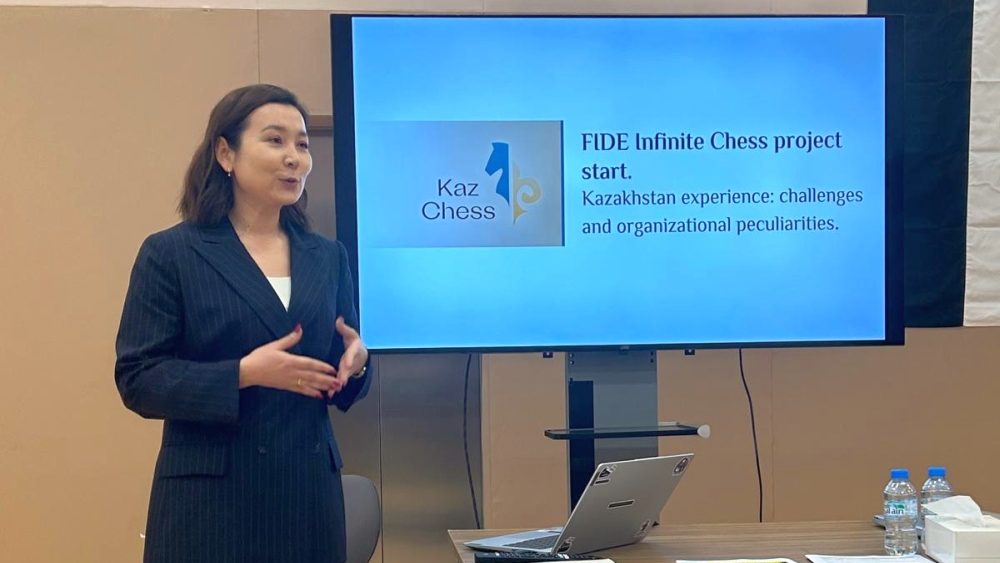
The visit provided an in-depth exploration of the official Infinite Chess methodology, providing a structured, step-by-step guide for teachers working in special needs centers and schools, equipping them with practical strategies for integrating chess into special education. Educators and trainers from around the world shared their expertise, offering insights into the unique training program developed in 2021. The seminar also featured hands-on sessions on how to effectively use the Infinite Chess Handbook.
The educational visit also included interactive sessions at the Abu Dhabi Autism Center, where participants engaged directly with students and staff. Practical workshops explored key aspects of teaching chess to children with autism, from behavioral management to structuring engaging lessons.
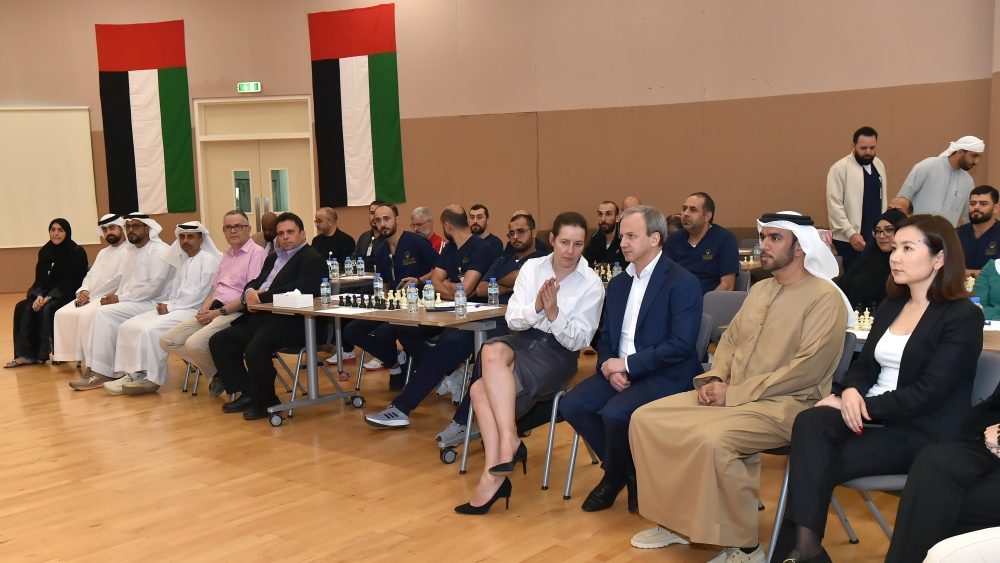
Distinguished guests were FIDE President, Arkady Dvorkovich; Dana Reizniece, Deputy Chair of the FIDE Management Board and FIDE Infinite Chess project supervisor; Anastasia Sorokina, Leader of the FIDE Infinite Chess project, FIDE WOM Chair, and Chair of the Asian Chess Federation Social Commission; Andre Voegtlin, Chair of the FIDE Social Commission; Sami Khader, Chairman of the FIDE Trainer’s Commission; Abdulla Ismail Alkamali, Executive Director of Zayed Higher Organization for People of Determination (UAE), Aysha Saif Al Mansouri, Director of Abu Dhabi Autism Center, Lou Zhou, Founder of Vanquour Wealth Management and Malcolm Pein ECU Vice President.
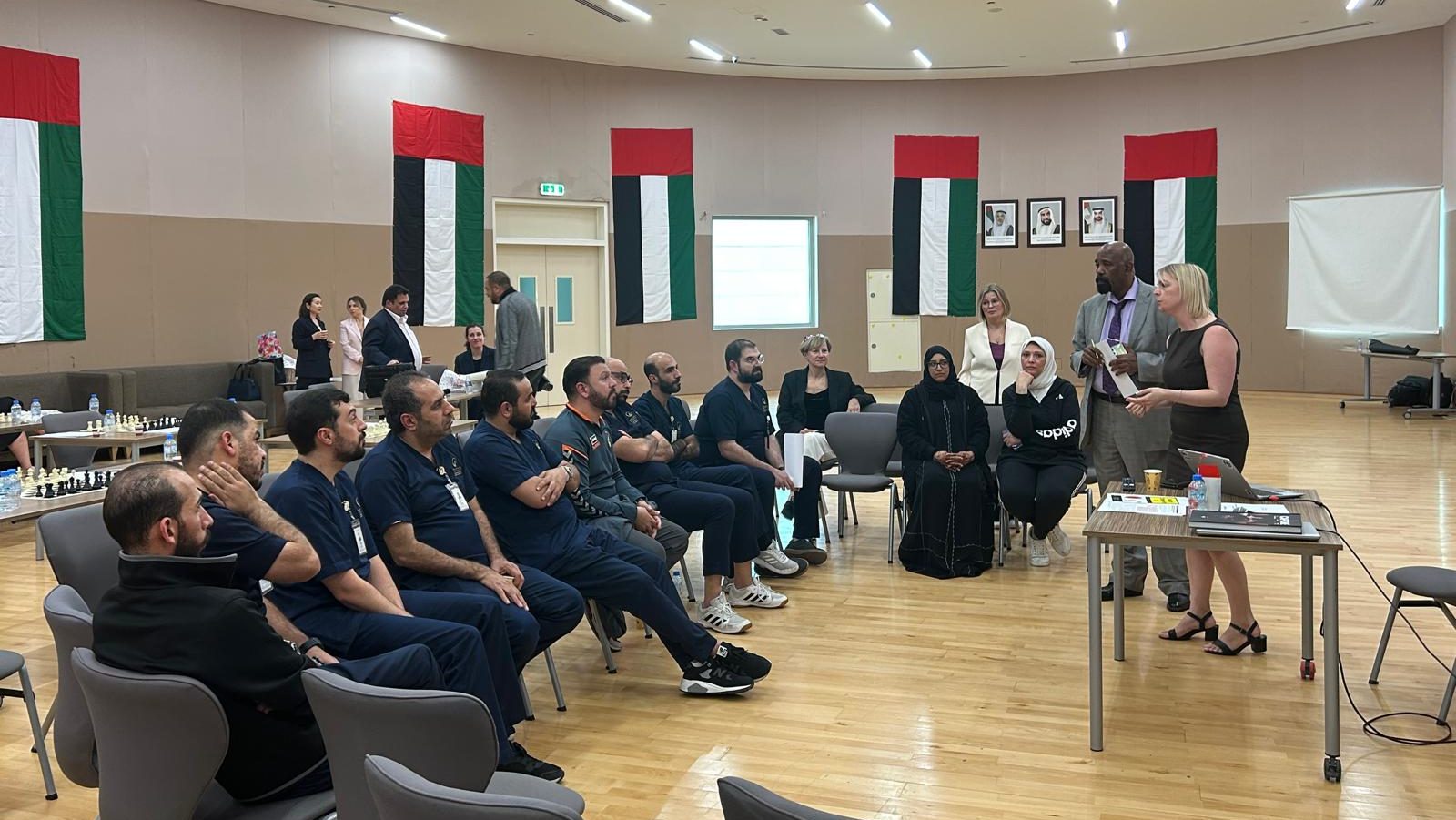
The Abu Dhabi Autism Center offers specialized multidisciplinary services to support children from 3 to 15 years old with learning difficulties, helping them reach their full potential and achieve successful inclusion. Their team of experts provides essential services such as speech therapy, occupational therapy, psychomotor therapy, special education, applied behavior analysis (ABA), psychology, and other specialized programs. As a leader in assessment, diagnosis, care coordination, family support, and education for children with learning difficulties, the center has made a significant impact in the UAE. In 2025, the number of students enrolled at the Abu Dhabi Autism Center stands at 197. Together with ZHO, the center has played a pivotal role in supporting children with learning difficulties, ensuring they receive the best possible education and care.
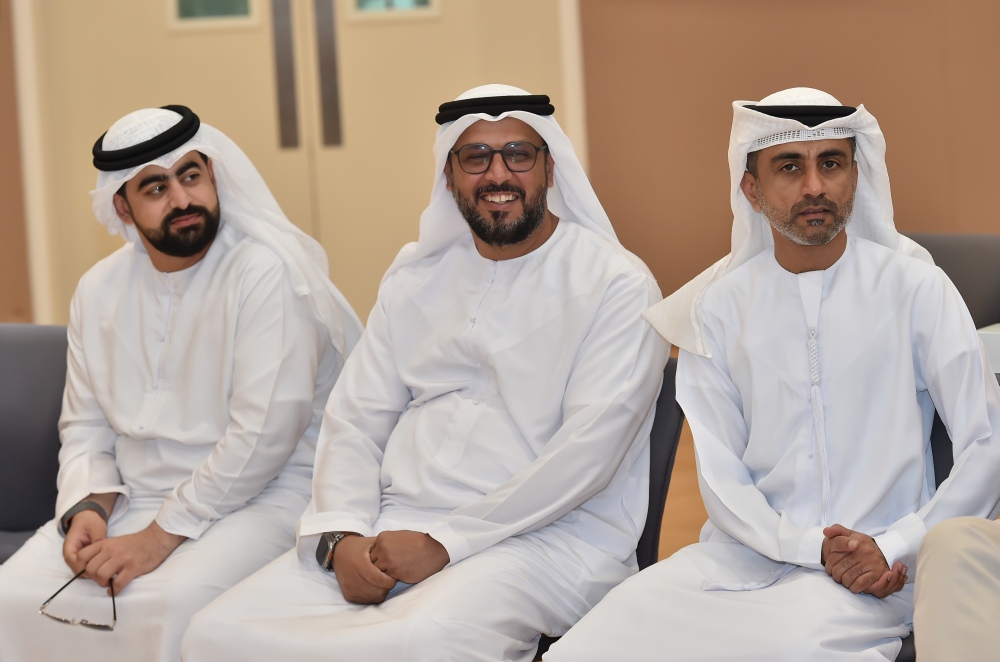
As the FIDE Infinite Chess project continues to expand globally, this visit to Abu Dhabi has laid a strong foundation for its success in the UAE. With committed partners and growing expertise in the region, the initiative is set to make a lasting impact on the lives of children with autism, empowering them through chess.
The FIDE Year of Social Chess continues to highlight the powerful role chess can play in education and social inclusion. The Infinite Chess project stands as a testament to FIDE’s commitment to using chess as a tool for development, inclusion, and empowerment. Through initiatives like these, FIDE is dedicated to ensuring that chess reaches every corner of society, helping individuals, regardless of their challenges, to thrive and achieve their full potential.
